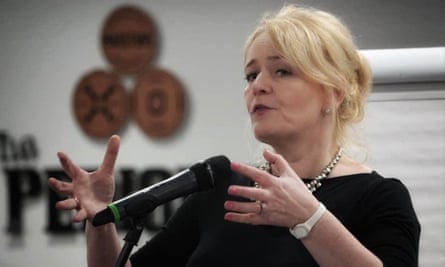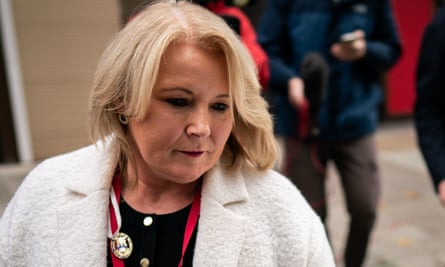Christina McAnea is the general secretary of Unison, the UK’s biggest union. Brought up on Glasgow’s Drumchapel estate, McAnea left school at 16 to join the civil service, before going to university at the age of 22 and earning a degree in English and history.
A longtime union official, the no-nonsense McAnea has couched Unison’s demands for better pay and conditions for NHS workers, who include paramedics and ambulance staff, as a battle for the future of the health service.
The result of a ballot of its 300,000-plus NHS members was disappointing, however, with the tough 50% minimum threshold for strike action reached at just eight employers – though these include most of the ambulance services across England.

Sharon Graham runs Unite, which was heavily involved in Jeremy Corbyn’s leadership of the Labour party under her predecessor, Len McCluskey.
Graham, who left school at 16 and led her first strike a year later, has taken a very different approach, focusing on industrial battles instead of Westminster politics. She hopes to increase the union’s leverage by taking on multiple employers across a single sector at the same time.
Unite has claimed several recent victories, including an end to the long-running Liverpool dockers’ dispute, which the union said resulted in pay increases of 14-18% for its members.

Pat Cullen is the general secretary of the Royal College of Nursing, whose members are due to take part in two historic strike days, on 15 and 20 December.
One of six children – four of whom were sisters, who also became nurses – Cullen grew up in Northern Ireland, where she worked in mental health nursing before holding a string of senior leadership posts.
She has been forthright in laying the blame for the forthcoming stoppages at the government’s door, saying earlier this week: “They refuse to negotiate with us and consequently have chosen strike over negotiation.”

Jo Grady, the general secretary of the University and College Union, which represents higher education staff such as librarians and lab technicians, as well as lecturers, is the figurehead of the strike action across universities.
UCU members are protesting about their pension rights, as well as low pay and the increasing casualisation and precariousness of their roles.
A lecturer in employment relations before she was elected to the five-year post, Grady is just 38 and widely seen in the labour movement as one of a new generation of forthright and media-savvy trade unionists.
